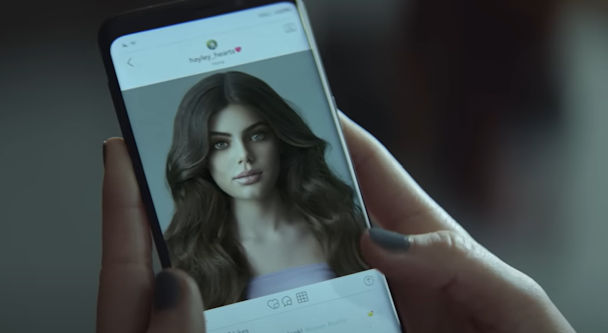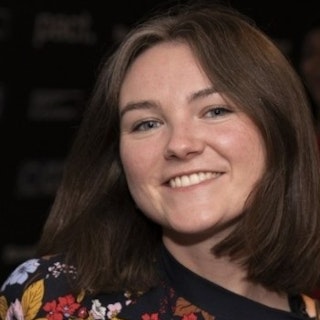Influencers who use beauty filters are now out of fashion at Dentsu’s Gleam
The agency is rallying brands to distance themselves from influencers using TikTok’s hyperrealistic touch-up filter, Bold Glamour.

Influencers that use beauty filters now out of fashion at Dentsu’s Gleam / Dove's Reverse Selfie set the tone on digital alteration
As one of the biggest influencer talent agencies in the world, Gleam has joined Dove in publicly condemning TikTok’s AI filter, Bold Glamour, as it touches up its own influencer editing policies.
TikTok’s new AI-generated beauty filter has been seen by over 400 million people - and it’s more realistic than any that precede. Dove was quick to call out the use of the filter, encouraging the use of the #TurnYourBack, #BoldGlamour and #NoDigitalDistortion.
Advertisement
The agency went one step further to say that beauty filters could harm the well-being of users. Its managing partner, Melanie Kentish, expressed sadness and fear over the potential impact of a filter like Bold Glamour.
Kentish isn’t alone, there has been a widespread backlash to the filter online as shown by one TikTok user @emilyciambella.
@emilyciambella This is getting alittle ridiculous :melting_face::melting_face::melting_face: #boldglam #filter #makeup #nofilter #wtf #fypシ #stop #beautiful #gonatural ♬ original sound - Emily Ciambella
“Computer-generated beauty is setting up all these young girls with future mental health issues because it's just completely unattainable,” Kentish expressed. 80% of girls have used a touch-up app by the time they’re 13.
Kentish added that the introduction of the filter undoes the positive work that had been done to improve diversity and inclusion in the influencer space – “all of a sudden, we have this one filter that defines what beauty is.”
Advertisement
Dove and the agency are courting TikTok to get Bold Glamour removed from the app. “It’s not just the app, there will always be further iterations. There needs to be some duty of care from these platforms,” Kentish said.
Kentish says while the industry has very limited control over what features platforms implement, she urges companies like Gleam to influence influencers to reject new beauty filters and as a result, fans. “It needs to be led by us to kind of stand up to make that change,” she says.
Suggested newsletters for you
Influencer filter manifesto
Gleam wants to know if its creators are A: using filters and B: disclosing that use.
“We won’t be working with influences that are editing content,” Kentish tells The Drum. “It is something we can’t represent because it doesn’t align with our values.”
To enforce that, Gleam will soon launch an influencer manifesto that includes its stance on digitally altered content. All talent will have to sign up for that. The manifesto will then be taken to the UK government to call on them to do more to tackle social media harm. It will also be baked into influencer contracts.
The policy makes Dentsu the second major agency to prohibit influencers from editing after Ogilvy made the same commitment in May 2022. Like Ogilvy in its approach, the first stage was to diversify the talent roster, then work with influencers at the brief stage to make sure content doesn’t cause harm.
Gleam would accept influencers that disclose when an image has been edited which is a policy still being reviewed by the UK government in its Digitally Altered Body Image Bill. “If you disclose on a post like an advert people then know and then they can make their own decisions,” Kentish explains.
“But if you’re being presented with an image of someone without knowing that they’ve applied filters, then it just gives a completely unrealistic set of expectations that they’re going to have, and diminishes authenticity, which is what influencers are about.”
